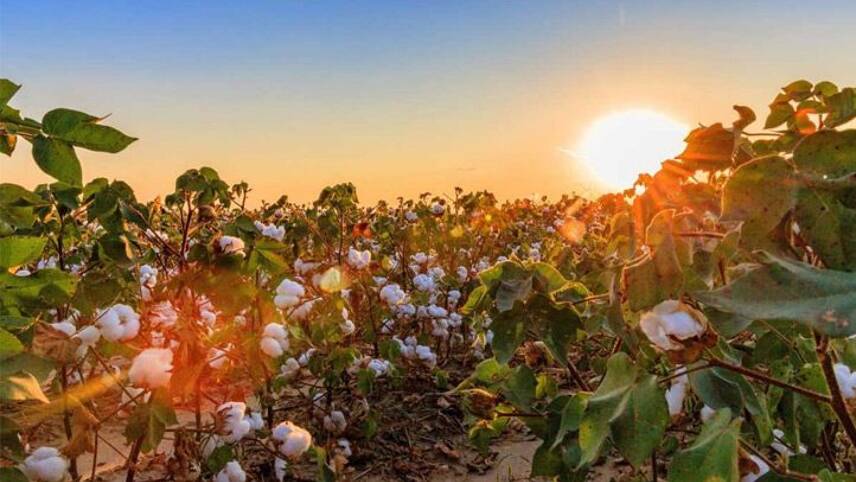Register for free and continue reading
Join our growing army of changemakers and get unlimited access to our premium content

Image: US Cotton Trust Protocol
The retailer owns brands including Athleta and Banana Republic as well as its namesake gap, making it one of the largest fashion companies in the US. Across all brands, it sourced 57% of cotton sustainably in 2019.
In order to meet the new commitment, Gap Inc has joined Textile Exchange’s 2025 Sustainable Cotton Challenge and the US Cotton Trust Protocol.
The latter of these two organisations provides brands and retailers with third-party assurance that the cotton in their supply chains is responsibly grown. It tracks metrics relating to water use; greenhouse gas emissions; energy use; soil carbon, soil loss and land-use efficiency, working with organisations including Field to Market The Alliance for Sustainable Agriculture and Control Union Certifications North America to obtain data and engage supply chain workers.
Textile Exchange, meanwhile, is a business-led coalition. Its Challenge is aiming to ensure that more than half of the cotton produced globally is produced using sustainable methods by 2025. Supporters include Zara owner Inditex, ASOS, Nike and Timberland.
The organisation believes that if enough brands and retailers commit to source through recognised organic and sustainable cotton farmers, this will become the norm. It claims that its list of verified schemes help improve livelihoods for smallholder farmers while reducing negative environmental impacts on cotton farms. The US Cotton Trust Protocol is on that list.
“Gap Inc.’s brands are in every household, including my own, and I am personally honoured it has chosen to work with us because it’s a global company that takes sustainability seriously,” US Cotton Trust Protocol president Gary Adams said.
“Gap Inc. has made significant strides since setting sustainability goals and the Trust Protocol’s farm-level data will help it in its mission to improve its impact and protect our natural resources.”
Cottoning on
In a fashion market dominated by synthetic textile blends, cotton is often touted as an all-natural solution and badged up as inherently “sustainable”. But it is resource-intense to produce and the global cotton supply chain is highly exposed to risks relating to climate change and human rights abuses.
According to WWF data from 2015, the global average water footprint for one kilogram of cotton is 10,000 litres. The worst-performing suppliers were using up to 20,000 litres to produce one kilogram, while the best-performing US businesses using irrigation were using up to 8,000 litres.
The most extreme example of the impact of cotton on water stewardship can be seen in the Aral Sea, which straddles Kazakhstan and Uzbekistan. The lake was once the worlds largest but was officially classified as completely dry in 2015. Cotton production in the region had once employed thousands but is now impossible. English-speaking audiences were only made widely aware of the tragedy in 2018 through a BBC documentary.
Aside from the fact that cotton is a thirsty crop, it is also linked to water pollution and soil degradation – both of which contribute to biodiversity loss.
Moreover, the events of 2020 have shone a light on human rights breaches in textile supply chains.
In 2019, the mainstream media in the UK and US began reporting allegations that ethnic minority Muslim groups were being held in labour camps in China’s Xinjiang region. Then, analysis determined that one-fifth of all cotton sourced globally passes through businesses in Xinjiang, making the majority of the fashion industry indirectly complicit in the atrocity. The US Government has since imposed sanctions on cotton from Xinjiang.
Fashion brands have also been accused of failing to pay suppliers for in-process or completed orders, citing the financial impact of the pandemic. Gap Inc. and other businesses, including Primark, agreed to pay after pressure from groups coordinated by Remake and the Clean Clothes Campaign. Some big names, including the parent comapnies of Topshop and Urban Outfitters, are yet to make this commitment.
Sarah George


Please login or Register to leave a comment.